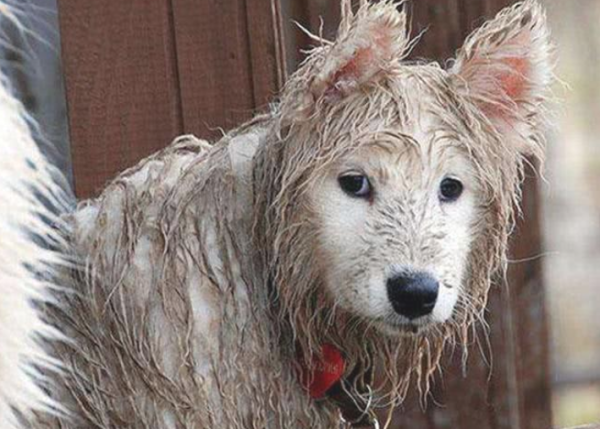The dog just vomited, which is actually fatal?
There are many causes of vomiting in dogs, such as gastroenteritis, body poisoning, and parasites in their stomachs. Many times, the shoveling owner cannot determine the cause of vomiting. He does not know which medicine to give the dog, nor how to describe the cause of the disease to the doctor. Therefore, today, from the aspects of nature, time and symptoms, he will help the shoveling owner to have a basic ability to distinguish the cause of vomiting from the dog.

1. According to the nature of the vomit, the vomit is a semi-digestible substance, which may indicate a problem with the stomach itself. There is blood in the vomit, which may indicate that there may be ulcers or tumors in the stomach.
2. Vomiting only 3-4 hours after eating 3}
is reported to be related to the small intestine, not a stomach problem, because if it is stomach discomfort, vomiting often occurs after eating.
Vomiting immediately after eating can indicate esophageal obstruction.
If vomiting is obviously not related to eating, it can indicate that vomiting is caused by non-gastrointestinal diseases, which is often caused by body poisoning, nerve damage, etc.
Vomiting occurs before diarrhea, suggesting that animals are ingested toxic substances or have progressive serious diseases such as canine parvovirus disease or cat panleoleocytopenia. Panleolocytopenia in cats is commonly known as cat distemper and infectious enteritis. It is an acute and highly contact-infectious disease in cats.
Vomiting occurs after diarrhea, which may indicate that the cause is often in the intestine and the possibility of the stomach is small.

3. According to the symptoms of vomiting combined with vomiting, dogs vomit without food but have a desire to drink, they vomit after drinking enough water, and have a low urine color, which can indicate acute gastritis or leptospirosis. They like to eat foreign matter in plants and trees; vomiting, which can indicate intestinal parasitic diseases.
The dog suddenly vomits repeatedly, abdominal pain, and sticky bloody stools, which can indicate intussusception.
A few mild-symptomatic dogs can recover from the stomach through their stomachs, but most of them still need surgery.
Dogs have persistent diarrhea, vomit after eating, howling, restless or moaning prone, look back at the abdomen, muscle tremor, dehydration, which often indicates intestinal torsion or intestinal strangulation. Twisting and twisting are caused by the intestinal translocation of the dog immediately after eating a lot of food, causing the intestinal segment to be translocated, causing the mesangial stenosis and surgical treatment is required.
Frequent vomiting or vomiting blood, diarrhea (or blood), moaning and abdominal pain, and aggravated abdominal palpation pain, which may indicate acute pancreatitis.
In short, the treatment methods are also different for various causes of vomiting. However, before distinguishing and diagnosed, if vomiting has caused abnormal conditions such as dehydration and electrolyte disorders, it is important to first perform symptomatic treatments such as infusion. Then, continue to find out the cause of vomiting.














